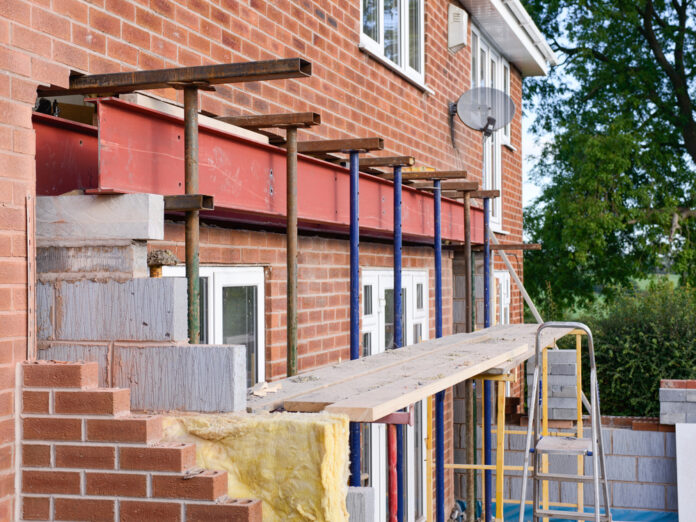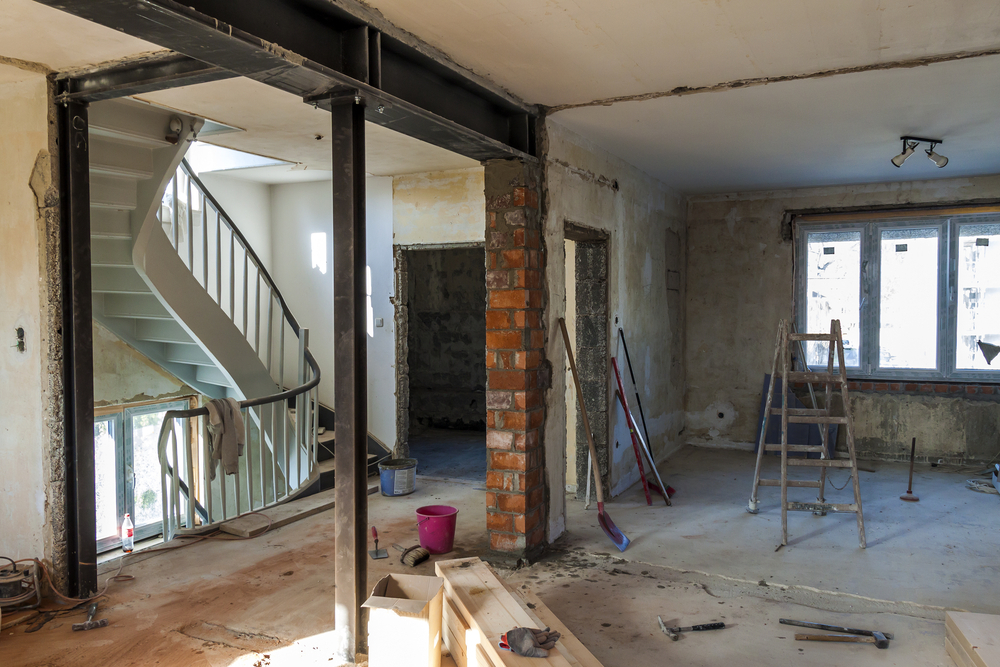With the logistical and monetary hassles involved in moving, it’s no wonder more people are choosing to adapt the home they’re already in to suit their changing needs. When undertaking a home renovation, there are endless decisions that need to be made, but one of the biggest is whether you’re going to be living at home during the process.
There are pros and cons to choosing to live in your house during a renovation, which we’re going to explain in more detail below to help you make the most informed decision on what’s best for you.
Check out:Home Renovation Bloomington IL
Pro: you don’t need to move out
The first and arguably biggest pro to living in your home during a renovation is that you don’t need to move out. Moving your worldly possessions is a hassle to say the least, especially if you’re going to be lodging with family or friends during the process and will likely be couped up in a spare room with limited space.
If you choose to live onsite, you may need to move a few items into different rooms or into storage, but that’s far easier than moving every valuable item you own out of the house. You might even be able to get away with simply covering items using a dustsheet, especially larger items like sofas.
Another benefit to living in your house during the renovation process is that you don’t need to worry about security. Believe or not, properties undergoing renovations are among the most popular targets for thieves, meaning if you’re going to be moving out, you need to employ site security to keep your house safe when the builders leave.
There are several methods pertaining to how you are able to secure a vacant property, but they all cost money. House renovations are pricey as it is, and that’s without the need for site security. Living at home during the process can save you money in this regard, not to mention in the way of rent payments, too.
Some people don’t have friends and family they can move in with temporarily, so they are forced to either live in hotels or rent out a property on a short-term lease. This involves moving items like toys for children, TV’s, potentially bulky items like sofas, washing machines and fridges, as well as smaller but essential items like cutlery, plates, cleaning products, and clothes.
Con: certain facilities will be off-limits
Depending on the area you’re renovating, certain facilities may be off-limits. When it comes to a living room or attic space, this isn’t so bad, but in the case of a kitchen or bathroom, it can become somewhat of a hassle. If you have two toilets or two bathrooms, it won’t be too much of an issue because you will still have a place to wash, but if you don’t, a bucket your neighbor’s shower will become your best friend. This isn’t the most pleasant experience and certainly isn’t good if you have children who are too big to wash in a bowl.
Most people don’t have two kitchens, so if you’re renovating this area whilst still living in the house, get used to having a kettle, toaster, air fryer, microwave, portable hob, and endless amounts of crockery in your bedroom. If you’re fortunate enough to have a large bedroom or a spare room, this might not be as much of an issue logistically, but it can present certain safety concerns with regards to heat.
Aside from practicalities, you might find access is restricted due to things like heavy equipment and supplies being in the way, as well as dust. It’s not always feasible for builders to remove all of their equipment as and when they leave, and whilst they should clean the dust everyday, there’s no doubt some will still remain. If you’re not nimble and able, living in a building site isn’t a good idea because of the physical obstacles it presents, as well as the effect things like dust can have on those with respiratory conditions.
Pro: you can keep an eye on progress
Another benefit of living onsite is that you can keep a close eye on the progress that’s being made. Early detection of snags means less time will spent at the end of the project pointing out things that aren’t quite right, and it could even prevent a costly disaster from happening.
This is especially useful if you don’t have a project manager and will be overseeing the project yourself, even more so if you work full time as it means you don’t need to spend hours every day after work liaising with the team – away from your family.
Living at home also means you’ll be aware of issues as and when they crop up, so you’ll always be in the loop.
Con: you might get in the way
Whilst you can observe what’s going on in your house, there’s a good chance you will eventually end up getting in the way if you’re constant with it. Whether you’re wandering around the house at weekends or just trying to be helpful, looking over the project can quickly turn into micromanaging. This is detrimental across all sectors, but especially in the case of building work.
Builders don’t need to be micromanaged, especially if you already have a separate project manager. Allowing people the opportunity to do their jobs will yield better results and a higher morale onsite. Your presence and micromanaging could result in delays if you’re not careful, and delays usually cost money.
Is it better to live onsite or offsite?
The answer to this question mostly depends on the type of renovation you’re going to be undertaking. If it’s a simple renovation of knocking down a wall or replacing the kitchen, you can easily stay at home and adjust your lifestyle to suit. On the other hand, if you’re having major structural changes made, it might be best to pack a suitcase and move out until the work is complete.



















